
Tetratheca is a genus of around 50 to 60 species of shrubs endemic to Australia. It is classified in the botanical family Elaeocarpaceae, now known to encompass the family Tremandraceae, which the genus originally belonged to. It occurs throughout extratropical Australia, and has been recorded in every mainland state except the Northern Territory.

Grevillea shiressii is an Australian shrub of the family Proteaceae endemic to New South Wales, where it is found in only two localities near Gosford.
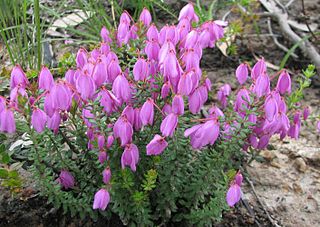
Tetratheca bauerifolia, commonly known as heath pink-bells, is a flowering plant in the family Elaeocarpaceae and is endemic to eastern Australia. It is a small compact shrub with pink-mauve flowers.

Tetratheca glandulosa is a spreading shrub in the family Elaeocarpaceae. It is endemic to New South Wales.
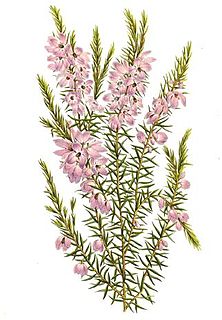
Tetratheca pilosa is a flowering plant in the family Elaeocarpaceae, endemic to Australia. It is a small shrub found in dry sclerophyll forests, open heathlands and woodlands of Australia. It was first recorded in 1805 by French botanist Jacques Labillardière.
Tetratheca paynterae, also known as Paynter's Tetratheca, is a species of plant in the quandong family that is endemic to Australia. There are two recognised subspecies.
Tetratheca deltoidea, also known as granite tetratheca, is a species of plant in the quandong family that is endemic to Australia.
Tetratheca decora, also known as black-eyed susan, is a species of plant in the quandong family that is endemic to Australia.
Tetratheca rupicola is a species of plant in the quandong family that is endemic to Australia.
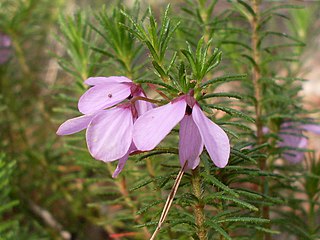
Tetratheca neglecta is a species of plant in the quandong family that is endemic to Australia.
Tetratheca labillardierei is a species of plant in the quandong family that is endemic to Australia.
Tetratheca insularis is a species of plant in the quandong family that is endemic to Australia.
Tetratheca halmaturina, also known as curly pink-bells, is a species of plant in the quandong family that is endemic to Australia.
Tetratheca nephelioides is a species of plant in the quandong family that is endemic to Australia.
Tetratheca harperi, also known as Jackson Tetratheca, is a species of flowering plant in the quandong family that is endemic to Australia.
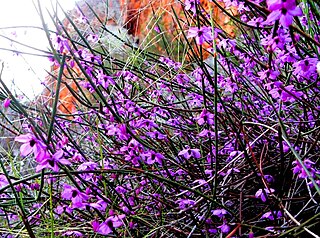
Tetratheca aphylla, also known as the Bungalbin Tetratheca, is a species of flowering plant in the quandong family that is endemic to Australia.
Tetratheca subaphylla, also known as leafless pink-bells, is a species of flowering plant in the quandong family that is endemic to Australia.
Tetratheca rubioides is a species of flowering plant in the quandong family that is endemic to Australia.

Tetratheca procumbens, also known as mountain pink-bells, is a species of flowering plant in the quandong family that is endemic to Australia.
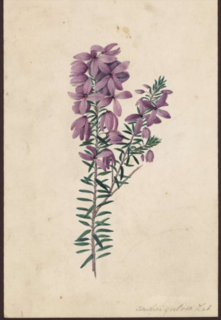
Tetratheca ericifolia is a species of flowering plant in the quandong family that is endemic to Australia.









